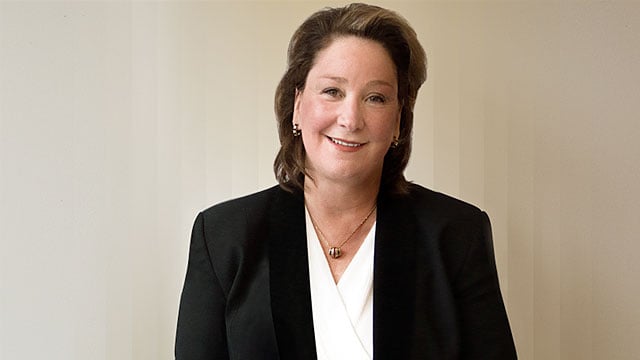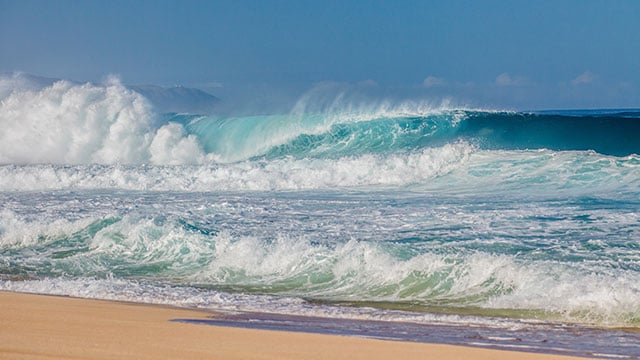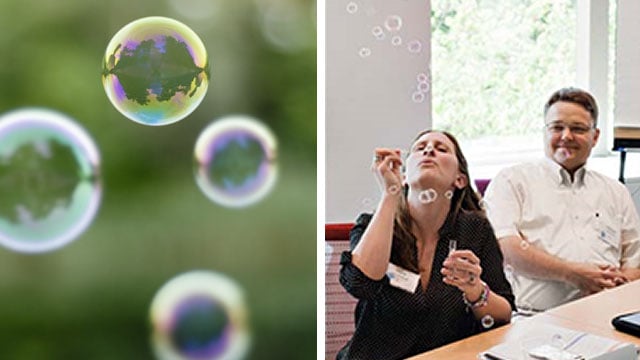(6 min read)
Michele Dunn is an international consultant specializing in executive development and coaching. Her work takes her around the world as she facilitates experiences with professionals in the US, Europe, Asia, Australia, and Latin America. We caught up with her in her office recently, where she shared the roots of her love of training and helping people grow—as well as the finer points of carrying bottles of bubbles through airport security. We also learned that no destination (or atmosphere) is too far-flung for Michele.

Name: Michele Dunn
Home: Wilton, CT
Website: http://micheledunn.com/
Number of Experiences: 506 ExperienceChange participant experiences...and counting!
Email: micheledunn@micheledunn.com
What do you love most about being a facilitator?
I don’t come from a training background, but I discovered I loved it early on in my career when I was a finance manager at TIME magazine. We were having a day-long staff meeting at a fancy New York hotel. It was just one presentation after another, and people were practically nodding off—and I was scheduled to deliver the last presentation of the day. I had no training experience, but something happened to me. I wasn’t going to have them falling asleep in my presentation! And they didn’t. People were saying: “Wow, we haven’t seen this part of you.” That was my first realization that I was pretty good at this.
Now, before I teach, I still have that same sense of anticipation, and that drives my preparation. And when I’m in the moment, and it’s flowing and the topic is really resonating with participants, you can feel it. It’s palpable. I also set a climate of confidentiality in the classroom that allows people to be open, and that’s contagious. It becomes a conversation among experienced, educated people—and you never know what’s going to come up in a conversation. So I’m challenged by their questions, which I love. I learn as much as I teach.
How did you transition into a training role?
I got recruited into an old-school manufacturing company that had a really visionary training group. My manager—who’s now the CEO of a Fortune 500 company—taught me everything. I was responsible for executive development. I hired and worked with faculty from places like Harvard and Yale, so I got the chance to see the best in action, and I learned from that.
It was such a change to go from not liking my job to suddenly having this job that I absolutely loved. That experience helps me today when I’m coaching people, because I know what they’re going through. I went through it, too.
Why is teaching others how to lead change important to you?
I’ve seen firsthand that if your business isn’t keeping up with things, you’re literally at risk of dying. The manufacturing company that I worked at, for example, produced Smith Corona typewriters. I was in a different part of the business, but I saw what happened, and it was a long, painful death. They could not see that typewriters were not the future of the information age. It was so glaringly obvious, and they just couldn’t see it. They couldn’t see the handwriting on the wall. It was such a striking lesson to me about how important change is.
When I’m leading a session on change, I will often reference the astronomer Carl Sagan. He said that the present becomes the past before you even have time to think about the future. So you have to be rolling with it and even try to get out ahead of it, because the velocity of change is so rapid.

I use the analogy of an ocean. You’re standing hip deep in the ocean, and the waves start coming at you, and they hit you and they can knock you down. It’s just like the relentless waves of change. You get up and then another one comes. And they keep coming. So you’ve got to figure out. Do I walk out of the ocean and just give up? Do I stand there and kick and fight against it and get hurt by it or even killed by it? Or am I going to find the rhythm of the wave and go with the flow by diving under it or jumping over it? Even on a daily basis in work, change never stops. It keeps coming at you, so you’ve got to figure out how to deal with it.
You're a world traveler, always off to facilitate in new and different places. Where have you been lately, and where will you be going next?
I just came back from Mexico. I’ve been to a lot of really nice places, but this was completely over the top. It was right on the ocean. I practically had my own villa—a courtyard, my own private pool and hot tub. The bathroom was twice as big as my office!
The other thing that was wonderful about it was that we had people from all over Latin America: Mexico as well as Brazil, Colombia, Venezuela, Argentina, Chile and Panama. Some of the stories were so eye-opening. One of the participants was an engineer from Venezuela who’d had to move to Panama because things are so bad in Venezuela. He was sending food back to his parents in Venezuela because there is no food on the shelves in the stores. It was such a contrast from the luxury of where we were staying. More than traveling to the places, you learn so much by being able to have these conversations with people.
I don’t have any international travel scheduled for the rest of this year, but I’ll go anywhere! We’ll see what happens next year!
If we could peer into your facilitation bag, what might we find?
Well, I always have my computer and technology adapters—I’m a real preparer. I also have inside me all the information and knowledge I’ve accumulated from my preparation about the country and the businesses. I also update my slides based on the circumstances. So a lot that goes into “the bag” is invisible. But I do give an usual gift to every participant in every class. And that gift is...bubbles!

It started when I was teaching negotiation skills to the nurses at GE. Their role had recently changed from helping if someone in a factory got hurt in an industrial accident. That role changed to them now being responsible for managing healthcare, disability, insurance—all these complex issues. I knew they were going to be nervous about learning how to negotiate, plus their responsibilities were changing, so I wanted them to feel comfortable. I decided to bring bubbles so they’d relax. Bubbles just like the ones for kids, with the bottle and the wand. It’s become kind of a tradition for me that in every class I teach, I give people bubbles. I like to give it to them early on and we all blow bubbles at once, and then I tell them, as we go through the week, “Bubble at will!”
My bubbles were actually immortalized in a German business magazine when they came to GE’s Crotonville facility to do an article. They just happened to capture the bubbles part of my session!
If you could work alongside one person for a day, who would it be and why?
It’s not a person in particular; it’s more of a group of people I’d like to be with. I would like to be an astronaut. Growing up, I was a huge space fan, and I still am today. When I was a kid, my father gave me a book about the moon, which I still have, and he inscribed it, “To my daughter, Michele, the first woman on the moon.” And I thought, I can still make it!